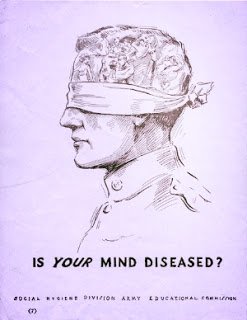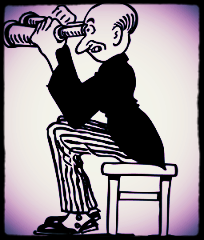
We may know of dickheads at work but how do we make sure we don't become one ourselves?
Dr Richard Claydon, a speaker at Clear Spot Club's coming event on dickheads at work, has pointed out the upbeat work of Stanford University cognitive behavioural psychiatrist David Burns, M.D, who argues that while external events influence how we feel, our own attitudes and thoughts have an even greater impact on our emotions.
Some people aren't into psychology but for those who are, you may find Burn's list of ten common cognitive distortions of interest.

1. All-or-Nothing thinking: you see things in black-and white categories. If your performance falls short of perfect, you see yourself as a total failure.
2. Overgeneralization: you see a single negative event as a never-ending pattern of defeat.
3. Mental Filter: you pick out a single negative detail and dwell on it exclusively so that your vision of reality becomes darkened, like the drop of ink that discolours the entire beaker of water.
4. Disqualifying the positive: you reject positive experiences by insisting they don’t count for some reason or other. In this way you can maintain a negative belief that is contradicted by your everyday experiences.5. Jumping to conclusions: you make a negative interpretation even though there are no definite facts that convincingly support your conclusion. In Mind reading, you arbitrarily conclude that someone is reacting negatively to you, but you don’t bother to check. In the Fortune Teller Error, you anticipate that things will turn out badly, and feel convinced your prediction is an already-established fact.
6. Magnification (Catastrophizing) or Minimization: you exaggerate the importance of things (such as your goof-up or someone else’s achievement), or you inappropriately shrink things until they appear tiny (your own desirable qualities or the other fellow’s imperfections). This is also called the binocular trick.

7. Emotional Reasoning: you assume that your negative emotions necessarily reflect the way things really are: I feel it, therefore it must be true
8. Should Statements: you try to motivate yourself with shoulds and shouldn’ts, as if you had to be whipped and punished before you could be expected to do anything. Musts and oughts are also offenders. The emotional consequence is guilt. When you direct should statements at others, you feel anger, frustration, and resentment.
9. Labeling and Mislabeling: this is an extreme form of overgeneralization. Instead of
describing your error, you attach a negative label to yourself: I’m a loser. When someone else’s behavior rubs you the wrong way, you attach a negative label to him: he’s a goddamn louse. (EDITOR NOTE: Or a dickhead!) Mislabeling involves describing an event with language that is highly coloured and emotionally loaded.
10. Personalization: you see yourself as the cause of some negative external event which in fact you were not primarily responsible for.
thanks
Downvoting a post can decrease pending rewards and make it less visible. Common reasons:
Submit